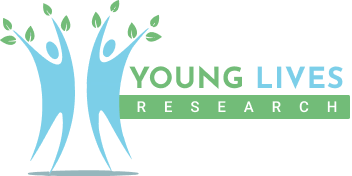Wekimün: A School With & For Indigenous Youth & Communities in Chiloé
Background
The project, Wekimün: a school with and for Indigenous youth and their communities in Chiloé, Chile (Wekimün School Project) was an intercultural, international, transdisciplinary collaboration funded by Global Affairs Canada from 2012-2018. In the Indigenous Williche language of Mapudungun wekimün means ‘new knowledge’, and it was with this vision for a new knowledge that incorporates and respects traditional and modern was of knowing that the Wekimun School Project was born. Through trusted relationships between the Young Lives Research Lab and the Williche Council of Chiefs of Chiloé, the Wekimün School Project was developed using a youth and community-centred approach to sustainable and just transitions for education that is true to culture, context and care.
We began by training Williche youth as young anthropologists so they could conduct a needs assessment throughout their Indigenous territories. The results of the needs assessment were clear, the Williche communities of Chiloé needed a school and a curriculum based in their traditional knowledge in order to support their culture and communities of their traditional territories. Together with team members, partners, and collaborators from all across Canada and Chile a unique school and education model were co-developed with, for and by Indigenous youth and their community members. The resulting school, Wekimün Chilkatuwe, has been certified as formal technical training college and now receives funding support from the government of Chile to ensure its continued growth and service to the Williche communities of Chiloé and beyond.
Project Goals
The project goals include the following:
develop pertinent trades school, of high academic standard, that is participatory and faithful to the spirit of wekimün
strengthen the relationships and abilities of Wekimün Chilkatuwe to ensure its sustainability and continued development
strengthen the critical consciousness of Wekimün Chilkatuwe students
place the students in a process of constant improvement of their wellbeing, employment, socioeconomic, productive, and environmental conditions
improve resource and community knowledge management by Wekimün Chilkatuwe students
Project Outputs
Wekimün Chilkatuwe offers two educational programs for Williche youth from the most isolated and vulnerable sectors of the Chiloé province who have little to no access to other educational opportunities. These two educational programs include Intercultural Health and Sustainable Development, and Intercultural Bilingual Education and Sustainable Development.
These programs were designed to offer students opportunities to reconnect with their culture and territories through project-based learning (PBL) and community engagement. The primary curricular areas of focus are 1)Intercultural Education, 2) Indigenous Language, History and Culture 3) Education for Sustainable Development and Human Rights, and 4) Health and Wellbeing in Indigenous Context. Courses were co-developed with community members, Indigenous Elders and academics and piloted with youth for their input and elaboration.
Current course offering include certification in the following areas: Intercultural Tourism, Intercultural Bilingual Education (specializing in the Indigenous language of Mapudungun), Traditional Williche Cooking and Nutrition, Traditional Williche Medicinal Therapies, and Sustainable Agriculture Production. Students and their communities benefit greatly from community-based PBL activities and traditional knowledge while receiving a formal, nationally accredited certification. Their education at Wekimün Chilkatuwe provides them skills that allow them to return to their communities to participate in and support the development and improvement of the quality of life for their families and their territories.

